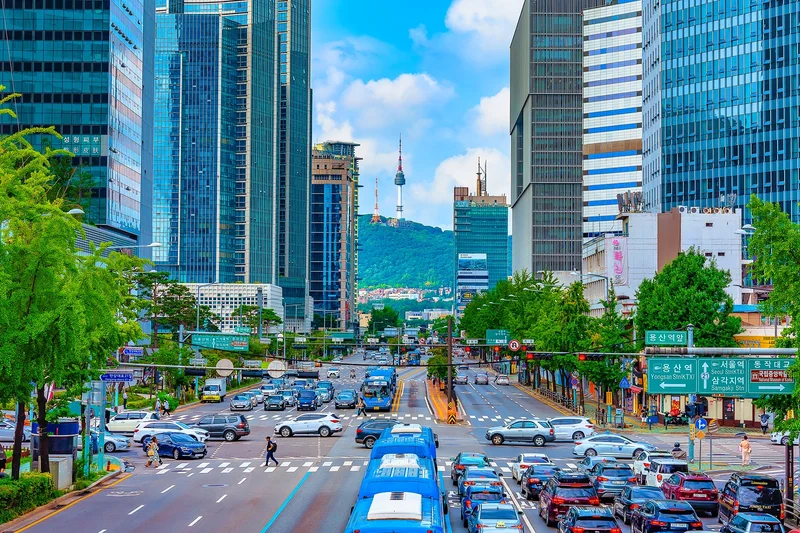North Korea's latest missile launch, as reported by Seoul's military, is more than just another blip on the radar. It comes on the heels of South Korea's plan to build a nuclear-powered submarine, a move that's practically begging for a response from Pyongyang. The missile flew about 700 kilometers (435 miles, to be exact) before splashing down in the East Sea. Japan's Prime Minister Sanae Takaichi says there were no reported damages, but the political fallout is just beginning. North Korea fires unidentified ballistic missile: Seoul military
The Kremlin, surprisingly, defended the launch, citing North Korea's "legitimate right" to ensure its security. This is a particularly interesting stance, given Russia's current geopolitical situation. Meanwhile, Tokyo called the launches "absolutely unforgivable" and is talking about revamping its defense capabilities. (Koizumi's statement about "not ruling out any options" is classic political speak for "everything's on the table.") What is the real price of maintaining "peace" in the region?
South Korea's pursuit of a nuclear-powered submarine is the real game changer here. Unlike their diesel-powered counterparts, these subs can stay submerged for extended periods, giving them a significant strategic advantage. Ahn Chan-il, a North Korea expert, points out that this capability would allow South Korea to "preemptively monitor or intercept weapons" in North Korean waters.
Trump had initially announced that South Korea would build the submarine in the United States, but Seoul is now considering building it domestically. Only a handful of countries—the US, China, Russia, and a few others—have nuclear-powered submarines. Developing this capability would be a major leap for South Korea, but it also paints a target on their back. How long will it be before we see advancements in submarine technology and countermeasures?
Kim Jong Un has declared North Korea an "irreversible" nuclear state. Since his summit with Trump collapsed in 2019, he's been on a path of escalating provocations. The war in Ukraine has further emboldened him, securing support from Moscow after sending troops to fight alongside Russian forces. The September parade in Beijing, where Kim stood alongside Xi Jinping and Putin, was a clear signal of his rising status on the world stage.

Lee Seong-kweun, a South Korean lawmaker, suggests that Kim is still open to talks with Washington, but only "when the conditions are in place." Frankly, I find this a bit naive. Kim has consistently shown that he's more interested in leveraging his nuclear capabilities for political gain than in genuine denuclearization. The proposed meeting with Trump never materialized, and the chances of it happening under the current administration seem slim, at best.
Meanwhile, in Seoul, a Supreme Court decision is set to trigger a wave of development near UNESCO World Heritage sites. The court validated a city ordinance that allows taller construction outside the 100-meter preservation zone. For Seoul Mayor Oh Se-hoon, this is a major political win, allowing him to push forward with redevelopment projects like "Sewoon District 4," which includes skyscrapers as tall as 142 meters. What Supreme Court's heritage ruling means for Seoul, Korea’s cultural legacy
This decision strengthens cities’ rights to shape urban planning, but it also raises concerns about the future of Korea’s cultural legacy. Huh Min, chief of the Korea Heritage Service, and Culture Minister Chae Hwi-young, are worried that the construction projects will endanger the historic cultural landscape. UNESCO has even warned that "uncontrolled vertical development" could negatively affect Jongmyo Shrine's World Heritage status.
One of the most famous cases of UNESCO revoking World Heritage status was Germany’s Dresden Elbe Valley in 2009, due to a bridge that was built "in the heart of the cultural landscape." Is Seoul willing to risk losing its heritage status for the sake of economic development? Or can a balance be struck between the two?
In the grand scheme of things, the situation on the Korean Peninsula is a complex interplay of military posturing, political maneuvering, and economic ambition. Kim's missile launch and Seoul's submarine plans are just the latest moves in a long-running game of escalation. The question is, where does it end?
In conclusion, I believe these escalating actions are more akin to a high-stakes game of nuclear poker than a calculated game of chess, with each player upping the ante without a clear understanding of the consequences.